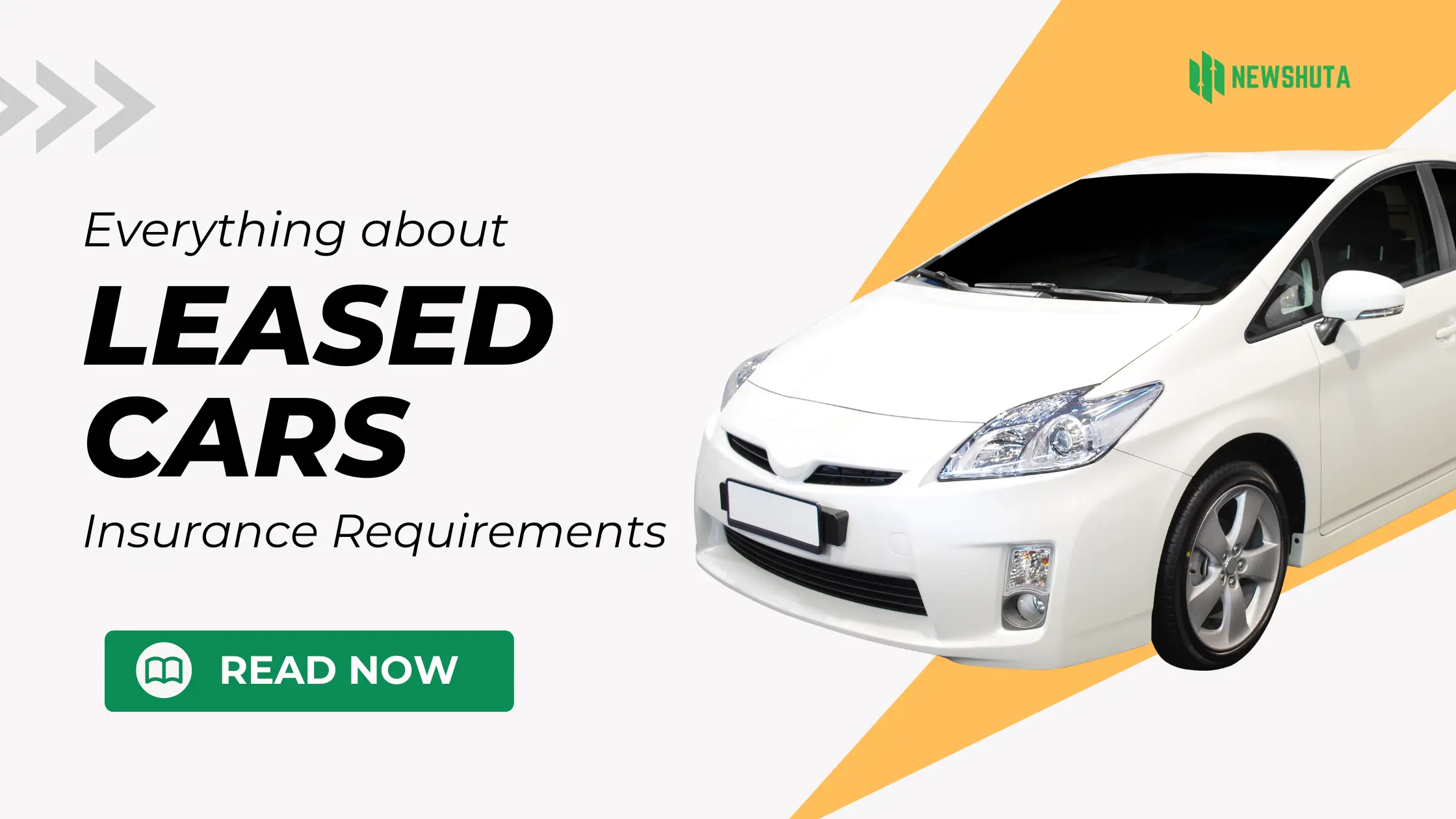Leasing a car requires more than monthly payments; it also involves meeting appropriate insurance requirements for both your safety and the leasing company’s asset. Vital coverages are comprehensive coverage, collision coverage, higher liability limits, and gap insurance to fill in for any difference between the value of a car and its outstanding balance. The comprehension of these requirements makes sure that you’re fully protected and compliant with your lease agreement so that you can enjoy driving around in your new car without worrying.
When you lease a car it is not yours. Ownership of the vehicle lies with the leasing company who needs to safeguard their investment. This has necessitated some insurance requirements from them, ensuring that if an accident or any other damages occur, there is adequate coverage on the vehicle at all times.
Why Is Insurance Important for Leased Cars?
Leasing a vehicle means you don’t own it. The lessor wants to protect their investment; hence they have imposed certain types of insurance needed to ensure the car is properly covered in case of accidents or other mishaps.
Key Insurance Requirements for Leased Cars
1. Comprehensive and Collision Coverage
Both comprehensive and collision coverage are generally needed by leasing companies. The former one covers damages not caused by a collision such as theft, vandalism, or natural disasters while the latter one pays for damages resulting from a collision with another vehicle or object.
2. Higher Liability Limits
Standard liability insurance may not be adequate when leasing. Moreover, higher liability limits are often sought by leasing companies to prevent substantial claims. For example:
- Bodily Injury Liability: $100,000 per person and $300,000 per accident.
- Property Damage Liability: $50,000 per accident.
These limits act as safeguards in case of accidents so that both you and the lessor are fully covered.
3. Gap Insurance
Gap insurance should be present on leased cars. If your car is totaled or stolen, standard insurance pays the actual cash value of the car at the time of the incident that might be way less than what you owe on your lease. On the other hand, gap insurance ensures you will not pay for a car no longer existing in your wallet.
4. Uninsured/Underinsured Motorist Coverage
Uninsured/underinsured motorist coverage is usually recommended although it’s not always necessary. It works whenever you get into an accident with someone who couldn’t afford any form of insurance or he just has inadequate liability coverage
How to Get the Right Coverage
More than meeting the minimum requirements, right car insurance for your leased vehicle involves a lot of things. Follow these hints to ensure you are well protected:
Shop Around for the Best Rates
There is a great difference among insurers in terms of charges which they offer on their covers. There are various firms that one can seek for quotes from and compare them using such tools. It is important to consider not only the premiums but also the options available as well as limitations of coverage.
Understand Your Lease Agreement
Be keen with your lease agreement. This will highlight specific insurance needs and lower limits. Fulfilling these requirements remains essential in circumventing penalties or even termination of leasing contract.
Consider Bundling Policies
Special consideration should be given to bundling this policy with others like renters or homeowners’ ones if already taken at this point. By combining policies under one carrier, there are chances that discounts may be obtained thereby leading to substantial savings.
Regularly Review and Update Your Coverage
Your coverage may need some adjustments over time. Always read about your plan frequently and make some necessary modifications where possible. This becomes very important in case you undergo changes such as changing location that can influence your premium payments.
Common Questions About Insurance for Leased Cars
Do I need insurance before leasing a car?
You must have an insurance cover before you drive away with your car from the dealer’s shop; yes! However, most leasing companies will require proof of insurance covering up to their stated minimums before completing the agreement about lease sale
Can I use my existing car insurance for a leased car?
In case your current policy satisfies the leasing company’s demands, it might be usable. But you may need to raise your limits or include other coverage types like gap insurance.
What happens if I don’t meet the insurance requirements?
Failing to meet the insurance requirements of your lease agreement can result in penalties. The leasing company might purchase insurance on your behalf and charge you for it, often at a higher rate. In severe cases, it could lead to the termination of your lease.
Navigating Insurance Challenges: My Personal Experience Leasing a Car
A few years ago, I decided to lease a brand-new car. The allure of driving a shiny, updated vehicle with lower monthly payments was too good to pass up. I went through the paperwork, signed the lease agreement, and drove home in my dream car, feeling on top of the world. However, my excitement was short-lived as I soon faced an unexpected challenge related to insurance.
I thought my existing car insurance policy would easily transfer to the leased car, but I was wrong. The leasing company had strict requirements that my current policy didn’t meet, specifically the higher liability limits and the necessity for gap insurance. My agent explained that while I had good coverage for a vehicle I owned, leasing required more robust protection to satisfy the leasing company’s standards.
Upon realizing that I had to bump up the policy, I called my insurance company. The process was not as straight forward as I thought it would be. My insurance premiums skyrocketed for this reason; both higher liability limits and adding gap coverage. This came as a bit of a shock to my budget, which was not in line with what I had expected when I decided on leasing instead of buying the car. It took me long hours talking to my insurance agent on phone trying to find ways to lower the costs without leaving out necessary coverage.
This placed me in a precarious condition because my policy wasn’t updated in time. The lease company wanted evidence of new insurance by their set deadline or else they were going to serve me with their own policy, at a much higher price. My stress level kept mounting as I tried sorting everything out.
Finally, after many tries back and forth, just on time I succeeded in getting the required coverage. From this experience, I have learned one important lesson about vehicle leasing and thoroughly understanding its complex nature especially when it comes down to knowing what your insurer expects of you beforehand. With prior knowledge of what lay ahead, better planning could have been done hence avoiding financial constraint and anxiety.
Every time a friend thinks about leasing a car, I tell my story. I stress out checking insurance requirements in advance and preparing for the premiums to go up. Leasing is great, but being ready for such aspect of insurance will make it more fun without any surprises.
Conclusion
It’s important to appreciate the need for proper insurance with respect to leased cars so that you are fully protected and compliant with your lease agreement as well. By securing comprehensive and collision coverage, higher liability limits, gap insurance, and possibly uninsured/underinsured motorist coverage you can have all the confidence to move around in your new leased car. Always remember to shop around, understand your lease terms, and regularly review your policy to keep your insurance coverage up to date. Drive safely!


Comments are closed.